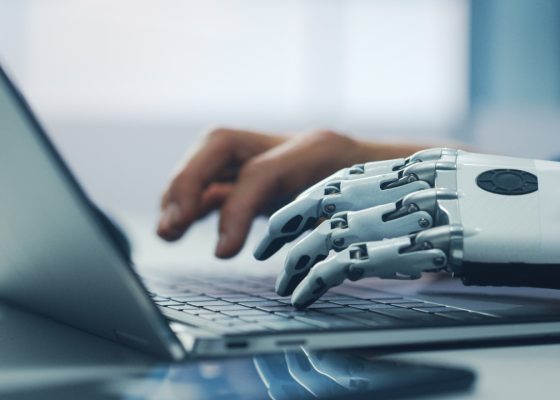The man who bore the brunt of public backlash during Victoria’s response to the covid pandemic says digital innovators must earn back Australians’ trust.
Rebuilding trust in science, and specifically in digital health technologies, is a priority of the CSIRO and should be of anyone working to digitalise the Australian health sector, says Professor Brett Sutton.
Professor Sutton, a director at CSIRO and lead of its Health and Biosecurity Health Unit, knows a thing or two about public trust.
As Victoria’s chief health officer from 2019 through to July of 2023, he led the state’s, at times controversial, public health response to the covid pandemic.
Speaking at the Australasian Institute of Digital Health’s HIC2025 conference in Melbourne this morning, Professor Sutton told delegates that trust in science was one manifestation of where society is at these days.
“We’re being challenged in terms of trust in all kinds of things,” he said.
“Trust in science is a manifestation. It’s not necessarily the beginning or the driver of all of those issues of trust, but it does relate to trust in the media, trust in national institutions, trust in government, trust in democracy, and we’ve seen the way that that’s been fracturing in more recent years.
“The [covid] pandemic was obviously a hit to that. In a crisis, there’s so much information exchange, there’s so much questioning of government actions or inactions and there’s a societal fragmentation and a loss of the social contract with government through crises as people struggle individually and collectively.”
That loss of trust means digital health innovators and policy makers need to address the issue of trust at a broad, ecosystem level, Professor Sutton told delegates.
“You, of course, have a deep desire for that innovation to be enabled through a full translational pathway,” he said.
“And if you have great innovation, it is absolutely no bloody good if it can’t come to its embedded end state, because that social licence to operate, or the social acceptability of those innovations is not in place.
“So we need to do the hard work, not just going toe-to-toe with mis- and disinformation and trying to tear down particular conspiracy theories, but that whole civic society uplift about our understanding of what enables trust, and then how to address at a systems level.”
For the digital health space specifically, Professor Sutton said it was important to instil that trust in the health workforce, particularly when it came to the use of AI as an administrative tool.
“I hope that the innovators understand that for our workforce, we don’t want to take away the things that are motivating, that they’re passionate about,” he said.
“We don’t want AI to do all the strategic, creative and motivating work and leave the workforce to do all of the grunt work that is repetitive and administrative.
“[We must] make sure that we’re designing the technologies to do the work that allows people to be at the full extent of the scope of their competencies, and to bring the human elements to the fore, so that instead of being taken away from their clinical encounters and those human engagements, that they can actually be freed up to do that human work that, after all, human beings are designed for.
“We do need that broad ecosystem building of trust in digital health. That can’t be left to little silos trying to spread the good word.
“It absolutely needs to be built into the ecosystem.”
In a subsequent panel of workforce resilience, Dr Amandeep Hansra, a GP and the Australian Digital Health Agency’s chief clinical advisor (Medicine), made the point that leaving health professionals “nothing but the hard work” to do, was not necessarily a good thing about AI use.
“We all talk about all the opportunities AI can bring, in helping with some of the administrative burden,” she said.
“WHO says that we’re going to be short 10 million healthcare workers by 2030. In Australia it’s about 13,000 GPs, 40,000 nurses, 27,000 allied health workers, by 2026 – that’s next year.
“We can’t train our way out of this. We can’t suddenly open up more university classes. We can’t import them from overseas.
Related
“We need to figure out a way to use what we’ve got, but use it more efficiently.”
Productivity Commission Dr Catherine de Fontenay told the conference yesterday that the system can save 11 hours a week per healthcare work with the full implementation of AI.
“But we need to think about, what are we then leaving clinicians to do? What is their role?” said Dr Hansra.
“If we say, okay, your job is either kind of memory-based or judgement-based, and if I say, AI can do the memory-based stuff, and the clinician does the judgement-based stuff – are we leaving all the really difficult, top-of-scope stuff, the stuff that is more complex, more emotionally burdensome, to the clinicians?
“Yes, I’m working to the top of my scope, but I’m also going to be mentally exhausted.”
Dr Hansra made a call to the digital health innovators to bear that in mind.
“Think about, what is the role of a clinician moving forward where you’re pushing them to the top of their scope,” she said.
“Are we going to make being a clinician attractive? Is that going to be something that someone wants to do?
“I get the productivity part, and I get that we’re going to be able to push people up to working on more difficult things, but I also we have to think about the humans in this and the psychology of what we do every day.”
HIC2025 is on in Melbourne on 18, 19 and 20 August.




